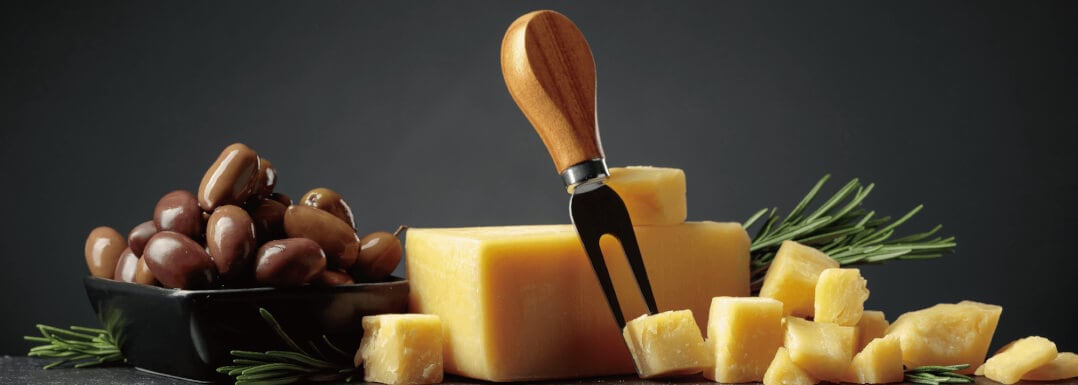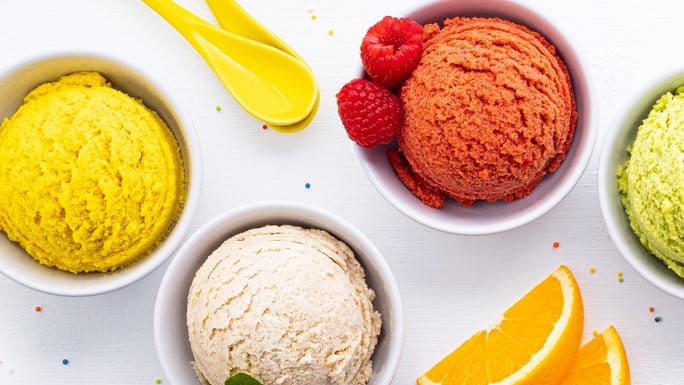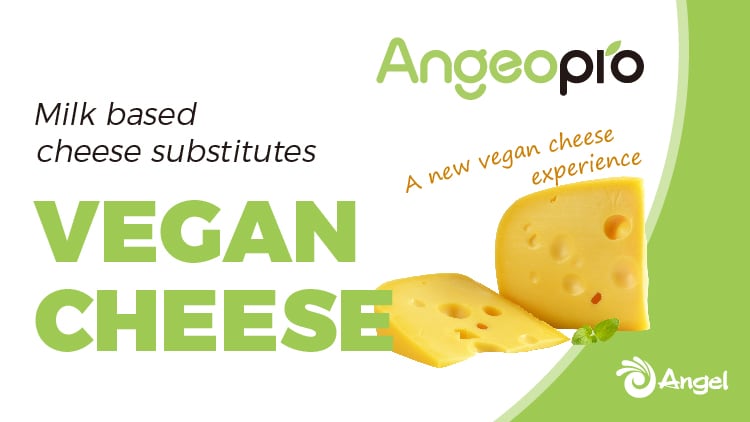Plant-based dairy is growing. Legumes, grains and nuts – from soy, rice and oats to coconut, almond and cashew, among others – have found their way into mainstream dairy alternatives in a market that’s driven by consumer demand for healthier or free-from ingredients, aligning with evolving lifestyles and dietary preferences.
While some plant-based milks are more sustainable than others, research shows that the production of all crops grown for alternative dairy is less harmful for the environment than dairy.1 The manure from cattle produces greenhouse emissions which contribute to climate change; poor handling of manure and fertilizers can degrade local water resources; and unsustainable dairy farming and feed production can damage ecologically significant areas, such as wetlands and forests.2
As such, the plant-based dairy sector is estimated to reach US $52.58 billion by 2028.3 Within this, the plant-based vegan cheese market in Europe is also growing, at an estimated CAGR upwards of 7% over the next four years.4 While production and processes vary, common ingredients used in a 100% vegan cheese include a range of vegetable oils, legumes and proteins, such as nuts, and refined starches and fibres, flavourings, vitamins and gelling agents.
Despite its growth, there is still room for improvement for plant-based cheese. Their traditional dairy counterparts have complex, characteristic flavours that evolve and mature during ripening, with the developing flavours arising from hydrolysis of protein from enzymes in the milk or other microorganisms. For vegan cheese manufacturers, mirroring these sensorial, and nutritional profiles, remains a key challenge within the alternative dairy sector.
In a survey carried out by the Plant Based Food Association and 84.51°, 73% of consumers associate the taste and texture of plant-based cheese with ‘plastic’, ‘unnatural’ or having a ‘grainy’ texture, while lacking the melt capabilities of dairy cheese.5
Indeed, the naturally ‘beany’ odour of soy and other legumes used in plant-based dairy is a characteristic off-note that can mar the taste profile and deter repeat purchase. And from a nutritional perspective, the raw materials in plant-based dairy can contain antinutrients, such as inositol phosphate (small molecule metabolites). These slow or prevent the absorption of minerals including calcium, zinc, and iron, while trypsin inhibitors decrease the protein's digestibility and overall nutritional quality.
Fortifying plant-based dairy with vitamins and other minerals isn’t always the answer, either: fortification can carry negative connotations with consumers and deter those who seek clean-label foods made from minimally processed ingredients; fortification can also cancel the potential for organic status. Furthermore, most plant-based vegan cheese is high in sodium and saturated fat but lacking the protein and calcium content of its dairy equivalent.
So how can manufacturers improve the taste and nutritional profile of plant-based vegan cheese and, more widely, alternative dairy, and help brands leverage headroom in existing markets and drive essential repeat purchase?
Taste, nutrition and sustainability
Yeast, or saccharomyces cerevisiae, is well established in the production of bread making and beer. In alternative dairy products, yeast extract is used to enhance the savoury umami taste and improve their nutritional attributes.
As a microbial protein, yeast extract can be used in non-dairy cheese formulations to simulate the maturation process and flavour development of conventional dairy cheese. Thanks to its naturally rich flavour, even just small quantities can enhance existing flavours, assist in salt reduction and help manufacturers successfully address formulation challenges.
Retailers are already tapping into its appeal for consumers: nutritional yeast flakes have become an established substitute for dairy cheese in recipes, their popularity driven by vegan and flexitarian cheese-lovers seeking plant-based alternatives.
Yeast protein offers up nutritional benefits, too. While the protein of dairy cheese comes from milk, yeast protein can be used as a vegan protein alternative for plant-based formulations. It is a complete protein containing all essential amino acids, B vitamins, trace minerals and dietary fibre, while being low in fat and calories and cholesterol-free. Leading yeast extract manufacturer Angel Yeast has found through research that yeast protein is superior to plant protein in terms of nutritional value, flavour purity and allergy issues.
From an environmental perspective, yeast has the sustainable credentials to accelerate the growth of alternative dairy. Yeast protein is made through an eco-friendly fermentation process that minimizes its carbon footprint, requires limited land for cultivation and is less affected by harvest and seasonality variations that impact plant-based protein production.
As part of its ongoing commitment to the research and application of yeast technology to contribute to a more sustainable world, on World Environment Day 2023 Angel Yeast committed to investing CN¥ 200 million (around €25 million) in technological reform, of which over 60 projects are directly related to energy conservation and environmental protection.
Enhancing and balancing flavours
Because yeast extract is used in a wide range of foods as a natural flavour enhancer, its inclusion in vegan cheese formulations and other plant-based products can enhance overall richness and improve aftertaste.
Certain yeast extract products containing characteristic peptides can further intensify the distinctive matured flavour of cheese. Those with fruity and nutty aromas, such as roller dried yeast, have similar characteristic flavours to cheddar cheese, which can enhance the cheese flavour and body at the same time. And in some sodium-reduced cheeses, yeast extract can effectively mask the bitterness from potassium and balance the overall taste profile, effectively helping to reduce sodium content.
Angel Yeast’s AngeoPro F80 is an innovative protein source derived from an eco-friendly fermentation process that’s suitable for use in a wide range of plant-based products including vegan cheese and other plant-based dairy products.
It has a high protein content of more than 75% and some of its essential amino acids have nearly double the amount of the World Health Organization (WHO) recommendation, including lysine (9.43g/100g), isoleucine (5.94g/100g) and leucine (9.78g/100g).
As well as boosting nutrition, AngeoPro F80 enhances taste and masks off-notes while being non-GMO, free from allergens and digestible up to 90%.
Manufacturers and formulators can also benefit from Angel Yeast’s off-note masking technology and its full range of yeast extract products that offer low-salt, taste-boosting solutions to enhance the flavour and texture of plant-based foods that mimic conventional cheese and dairy.
As the plant-based dairy movement continues to gather pace, yeast extract can help manufacturers tap into new opportunities and appeal to an ever-discerning market.
References
1. Poore J.; Nemecek T. (2018). Reducing food’s environmental impacts through producers and consumers. Science 360,987-992.
2. World Wildlife Fund. Dairy - overview.
3. Market Analysis Report. (2017-2021). Dairy Alternatives Market Size, Share & Trends Analysis Report by Source.
4. Market Research Report. (2020). Europe Vegan Cheese Market Forecast to 2027 - COVID-19 Impact and Analysis - By Product Type.
5. 84.51 and the Plant-based Foods Association. (March 2023). Unmet Needs Insights & Solutions, Discovery Survey.







